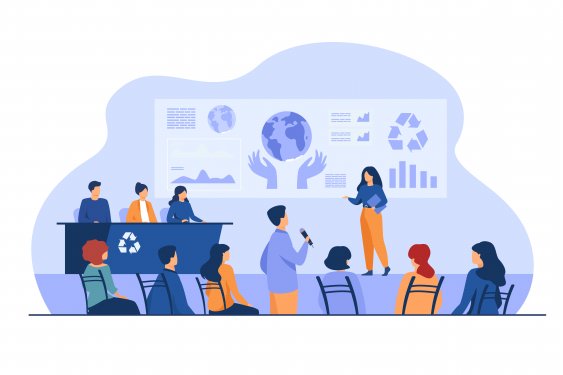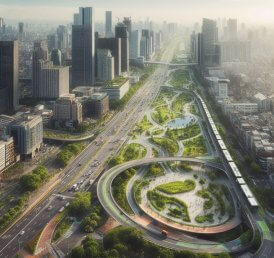Are We Developing in The Right Manner?

By Aqsa Pervaiz

An ordinance passed by the President of Pakistan Dr. Alvi to change the fate of the Bundal islands of Sindh for development purposes shock many as such a step from the ruling party, the firm ally of the environment as compared to its predecessors was quite surprising. After all this, one can deliberately ask, either the ruling elite’s concern and sympathy for the environment in the form of campaigns like the Billion Tree tsunami and Electric Vehicles Policy is real or a farce to get applause from the globe.
Progressing with a holistic approach, like socially desirable, ecologically viable, and economically feasible solutions are the demand of sustainable development, but the government has taken the wrong direction by allocating the environment a space only for plantation, far away from developmental activities. Industrial emissions are causing serious concerns in the overall country. Industries are located nearby the residential areas with public spaces like, green areas around, which are supposed to enhance people’s connection with nature and for recreational activities. Concerned authorities’ negligence and failure to curb the emissions from big emitters of the country would bring zero outcomes to mitigate climate change. Overcrowded towns are the hotspots of air pollution. According to the WHO, 7 million people succumbed to death annually because of air pollution. And, the ambient air quality in Pakistan is responsible for 135,000 deaths annually. Similarly, we rank 80 among 122 countries regarding drinking water quality. Industrial effluents are discharged into water bodies making water highly contaminated which deteriorate public health and no responsible authority considers this action accountable and a great majority of the populace is deprived of to access clean drinking water. Moreover, the blame game in the waste management issue of Karachi solely needs community cooperation and coherent state policy. But unfortunately, governments are reluctant to solve the issues of the common man.
To curb greenhouse gas emissions and meet the SDGs targets, Pakistan must start determining the environmental problems from the grass-root level. Designing new climate-smart development policies can lower the emissions level divided almost equally into all sectors of life in the country. In addition, the growing entrepreneurial environment in the country must be backed by the assistance of social cohesion and efficient resource conservation techniques with clear environmental objectives from the government. The emphasis of policies and administration highly discriminates affected rural communities even though the major polluters are urban spaces. Cities own most of the green spaces for recreational values and cultural ecosystems. But, fast urban growth seems to overtake them in near future. The focus on unsustainable development in cities is the hub to hundreds of problems arising. Sustainable growth requires equality and unless we correct the existing problems and prioritize the environmental objectives in the public-private partnerships for all kinds of projects we are unlikely to achieve it. Therefore, growing cities require technologies and planning with zero emissions.
The notion that our land possesses immense renewable resources and our Prime Minister Imran Khan’s commitment to the Paris Agreement to generate 60pc of Pakistan’s energy from renewable resources demands effective policy design and implementation to utilize them. Efforts should be carried out to build new solar, wind, and geothermal energy sources. Disputes in way of development indicate the absence of stakeholders in decision-making processes. Either political controversies in the Kalabagh dam project or recent affected person’s protest due to construction of Dadhocha dam like issues must be resolved before planning.
Awareness regarding the environment and its conservation is the need of the hour. Voluntary organizations can come up with awareness tactics relevant to cultural mindset. Further, by enhancing community-level awareness for the importance of the environment and its benefits for people. Industrial and agriculture practices growth can be enhanced by achieving green technologies with no harm to the environment. It is high time to think about the environment and sustainability with prudent measures as it is necessary not only for the welfare of the citizens of this state but also to maintain sharp economic growth.


